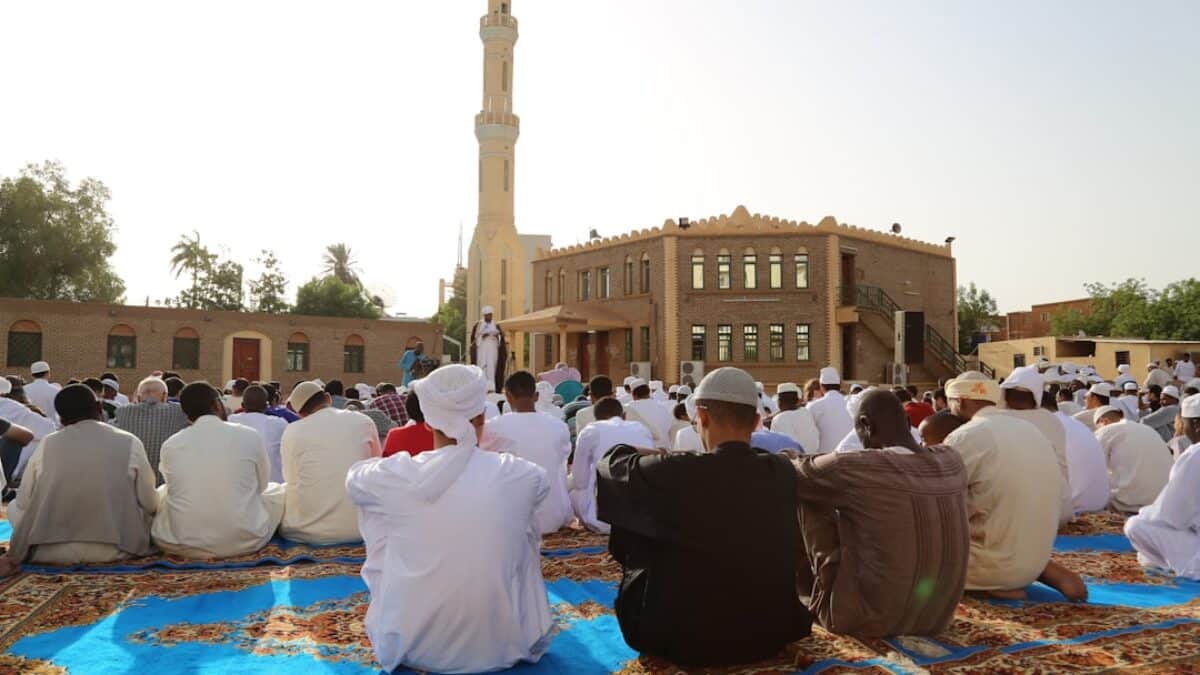Ramadan arrives like a gentle tide, recalibrating our inner compass toward Allah. Yet in an age of endless notifications, binge–worthy series, and twenty-four-hour news cycles, the very stillness that makes Ramadan transformative can feel elusive. We enter the month determined to pray more, recite more, and give more—only to find ourselves scrolling through social feeds at iftar or replaying work conversations during taraweeh. Distraction is not merely a nuisance; it quietly erodes the spiritual momentum this blessed month promises.
The good news is that distraction is not inevitable. Just as the Prophet ﷺ and his companions cultivated focus without smartphones, we too can design a Ramadan that safeguards our attention and amplifies our worship. Below are ten rigorously tested strategies—drawn from Qur’anic guidance, Prophetic practice, and modern behavioral science—to help you reclaim attention and deepen devotion from the first suhoor to the last takbeer of Eid.
Understanding Distraction in the Ramadan Context
Distraction is any internal or external stimulus that diverts cognitive and emotional energy away from our intended act of worship. During Ramadan, the stakes are higher because time is compressed. Every hour carries multiplied rewards, and any moment lost to futile scrolling or idle chatter feels like spiritual capital wasted.
The Neuroscience of Attention & Worship
Neuroscience calls our capacity to stay on task “executive attention.” When we perform salat, recite Qur’an, or make du‘ā, the prefrontal cortex lights up, suppressing irrelevant stimuli. Fasting naturally sharpens this filter by lowering blood glucose variability and reducing dopamine spikes from food and drink. In other words, the physiology of fasting already primes us for deeper focus; we simply need to remove the behavioral friction.
Common Ramadan Distractions
- Digital Overload: Social media, group chats, and streaming platforms.
- Social Overcommitment: Excessive iftar invitations that crowd out Qur’an time.
- Work & Study Pressures: Deadlines bleeding into nightly worship windows.
- Domestic Clutter: Physical mess that competes for mental bandwidth.
- Emotional Turbulence: Unresolved anger, envy, or anxiety looping in the mind.
Key Components of Deep, Undistracted Worship
Before diving into the ten methods, it helps to understand the three pillars that uphold sustained khushūʿ (spiritual presence):
- Intentionality (niyyah): A deliberate aim before each act of worship.
- Environment Design: Structuring physical and digital spaces to cue prayerfulness.
- Internal Reset Rituals: Brief practices that refocus the heart when the mind wanders.
All ten strategies operate on these pillars, either singly or in combination.
Benefits and Importance of Focused Worship
| Benefit | Ramadan-Specific Reward | Long-Term Carry-Over |
|---|---|---|
| Increased Qur’anic Comprehension | Each letter = 700 good deeds (reported by at-Tirmidhī) | Habit of daily, reflective recitation |
| Khushūʿ in Ṣalāh | Du‘ā between adhāand iqāmah not rejected | Permanent upgrade in prayer quality |
| Emotional Regulation | Sawm (fasting) shields from anger (Bukhārī) | Greater patience with family and colleagues |
| Barakah in Time | Same 24 hours feel expansive | Post-Ramadan productivity gains |
10 Proven Ways to Avoid Distractions and Deepen Your Worship
1. Pre-Ramadan Digital Declutter
Just as we clean our homes for guests, we must clean our devices for the Qur’an. Two weeks before Ramadan:
- Uninstall or silence non-essential apps.
- Unsubscribe from promotional emails.
- Create a “Ramadan Folder” on the home screen: Qur’an app, dhikr counter, prayer times, and charity portal only.
The Prophet ﷺ said, “Part of a person’s excelling in Islam is leaving what does not concern him.” (Tirmidhī) A minimalist phone is the modern embodiment of this wisdom.
2. Set Worship Sprints with the Pomodoro Spiritual Technique
Traditional Pomodoro uses 25-minute work blocks; we adapt it for ‘ibādah. Choose a 20-minute Qur’an sprint followed by a 5-minute dhikr break. Three sprints equal one hour of high-focus recitation—longer than many people manage in a whole day of scattered reading.
Sample Sprint Schedule
- Sprint 1: Recite 3 pages with tarteel (measured recitation).
- Break: 33× SubhānAllah, 33× Alhamdulillāh, 34× Allāhu Akbar.
- Sprint 2: Read the English translation and underline new vocabulary.
- Break: Stand, stretch, and sip water if not fasting.
- Sprint 3: Memorize two āyāt using spaced repetition.
3. Designate a “Mihrab Corner” in Your Home
Historically, a mihrab is the niche indicating the qiblah. Replicate this symbolically:
- Face an empty wall, place a small bookshelf with mushaf, miswāk, and prayer rug.
- Keep phone out of arm’s reach.
- Diffuse calming scents like musk or rose water to anchor the space sensorily.
Over time, the brain associates this corner with sacred stillness; merely sitting there triggers a calmer heart rate.
4. Implement “Notification Fasting”
Just as we fast from food, fast from alerts:
- Turn off all non-critical notifications during iftar to taraweeh block.
- Use Do Not Disturb with an automated reply: “In worship; will respond after taraweeh.”
- Inform colleagues and family beforehand to respect the boundary.
A study by the University of California found that even the mere possibility of receiving a message drops cognitive performance by 10 %. Eliminate the possibility; elevate the performance.
5. Curate a Qur’an Circle—Virtual or Physical
Accountability doubles consistency. Pair with a spouse, sibling, or friend to share daily Qur’an goals via voice note or short call. The Prophet ﷺ encouraged collective worship: “A believer to another believer is like a building whose parts support each other.” (Bukhārī)
Sample Weekly Circle Agenda
- Each member recites newly memorized āyāt (2 minutes).
- Discuss one tafsir insight (5 minutes).
- Close with du‘ā for the ummah (2 minutes).
6. Time-Box Social Obligations
Iftar invitations are meritorious, yet too many can fragment the night. Adopt a “2-2-3 Rule”:
- 2 weekdays: Host or attend iftar.
- 2 weekends: Allocate for family and community.
- 3 nights weekly: Protect for seclusion and Qur’an.
Communicate this template early; people respect boundaries when they are clear.
7. Leverage the Power of Pre-Sleep Qur’an
The last 30 minutes before sleep are neurologically fertile. The brain converts short-term memories into long-term ones during slow-wave sleep. Use this window to:
- Read one juz in Arabic and translation.
- Recite Ayat al-Kursi and the three quls.
- Set the intention to recall the verses in tahajjud.
Many huffādh attribute retention breakthroughs to this nightly routine.
8. Practice Micro-Mindfulness between Sunan and Fard
While waiting for the iqāmah, avoid idle chatter:
- Sit in the sunnah posture and perform astaghfar 100 times on your fingers.
- Visualize standing before Allah on Qiyāmah.
These 60–90-second intervals add up to over 30 minutes of focused dhikr daily for the five obligatory prayers alone.
9. Employ the “Three Whys” Before Any Screen Time
When the urge to check your phone strikes, ask:
- Why now?
- Why this app?
- Why not Qur’an or du‘ā instead?
If you cannot articulate a compelling reason, leave the device. A simple sticky note on the screen protector with “Is this better than Laylatul Qadr?” can jolt the heart back to purpose.
10. End Each Night with a Gratitude & Gap Review
Reserve five minutes before sleep to journal:
- Gratitude: Record one moment when Allah’s help was palpable.
- Gap: Identify one distraction that crept in and how to counter it tomorrow.
This feedback loop builds metacognition—the ability to watch your own mind and gently steer it back when it drifts.
Practical Applications: Sample Daily Ramadan Blueprint
The Ideal Day (Adjust to Your Reality)
Time Focus Strategy Spiritual Goal 04:30–05:00 Pomodoro Sprint 1 (Qur’an recitation) Complete 1/4 juz 05:00–05:15 Micro-mindfulness & suhoor 100 istighfār while eating dates 12:45–13:00 Mihrab Corner: dhikr during lunch break Salāt on the Prophet 300× 18:00–19:30 Notification fasting for iftar prep Present-moment awareness while cooking 20:30–21:00 Qur’an Circle with family
<td
























Post Comment